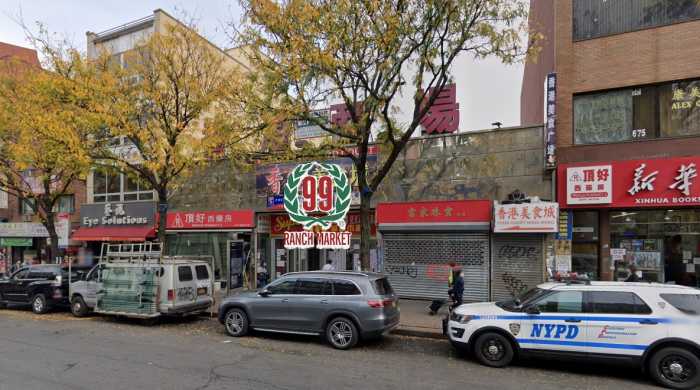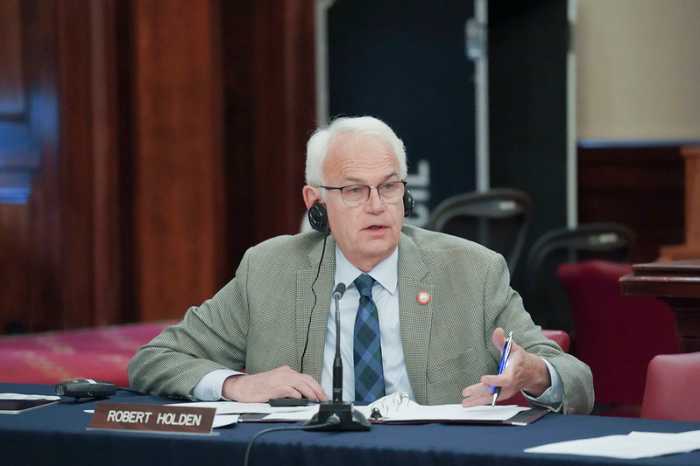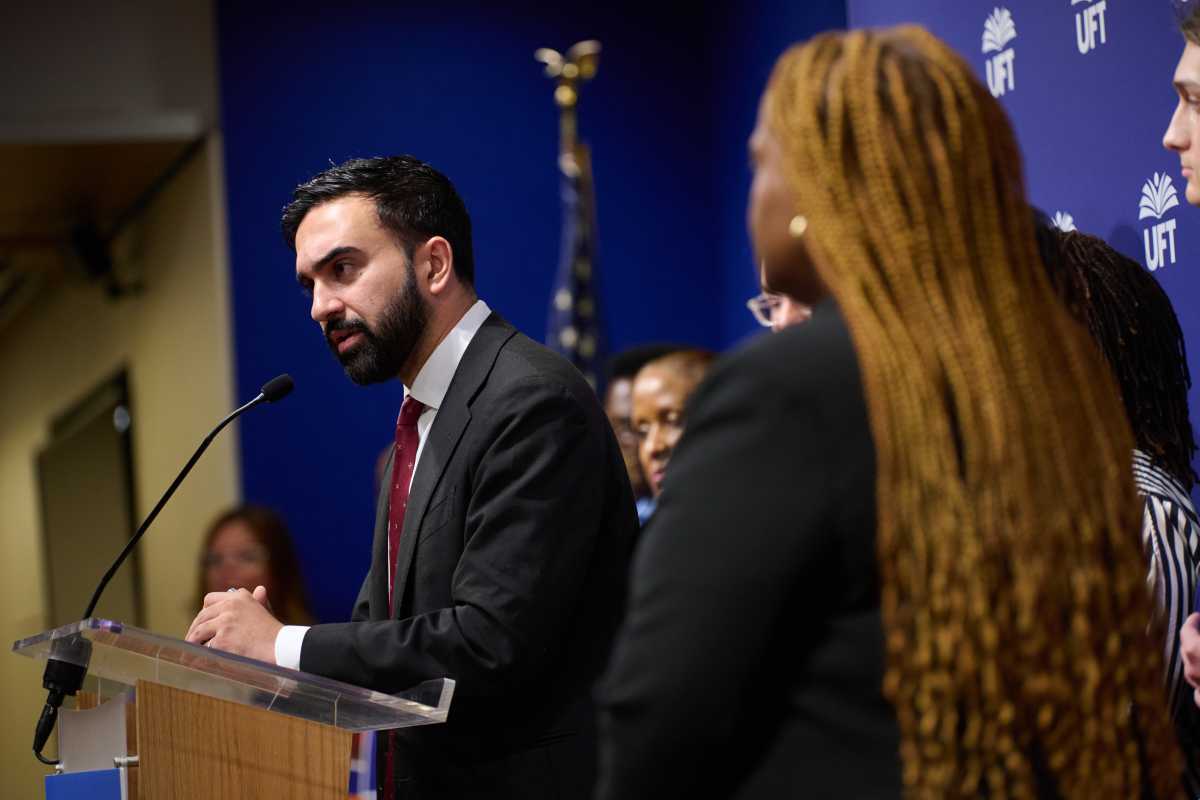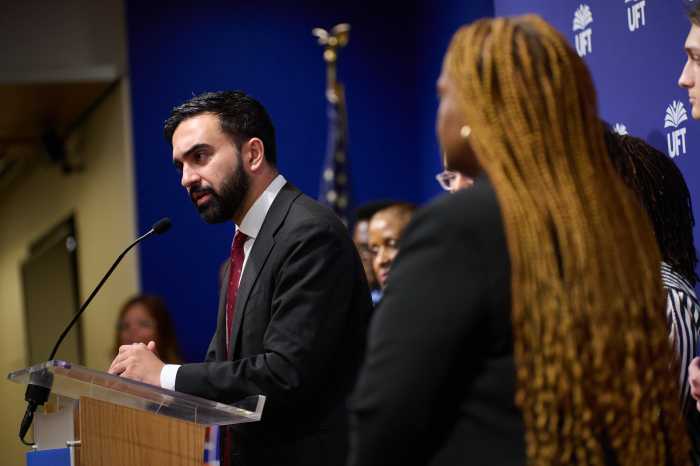By Dustin Brown
Two weeks after cracking down on a multimillion-dollar prostitution ring in Long Island City, Queens District Attorney Richard Brown promised residents that law enforcement officials would maintain a close watch over the area to ensure the crime does not resume.
“This is not something that’s over as far as we’re concerned,” Brown told the nearly 100 people gathered for last Thursday’s monthly meeting of the Dutch Kills Civic Association. “This is a continuing operation.”
Police arrested five pimps and 20 streetwalkers Oct. 25 following a lengthy investigation into prostitution at Queens Plaza, a longstanding problem that has frustrated police. for years. A sixth man charged in the case remains at large.
Dubbed Operation Plaza Boys, the six-month investigation allowed police to build a case against pimps who ran “stables” of between five and 10 prostitutes, each of whom was forced to earn as much as $1,000 in a single evening.
By targeting the pimps, who collectively netted $2.2 million a year, police expected to eliminate the crime at its source.
Brown, who was joined at the meeting by representatives of the 108th and 114th precincts, said the arrests appear to have been successful at removing prostitution from Queens Plaza.
“It’s been really quiet over there over the course of the past two weeks,” Brown said.
Although police have observed lone prostitutes since the arrest, the large-scale enterprises that previously overran the streets near Queens Plaza with dozens of women have disappeared, Brown said.
“We are still watching,” said Assistant District Attorney Tony Communiello, the bureau chief of civil enforcement. “If it comes back, we’ll sit down and put our heads together.”
Wedged between Queens Plaza and 34th Avenue, Dutch Kills sits on the periphery of the neighborhood where the prostitution was most heavily concentrated.
“It became a sanitation problem, it became a noise problem, it became a dangerous thing because people are fighting all the time,” said civic member George Stamatiades.
Residents who attended the meeting expressed a wary confidence that the new approach would curb a problem they said has existed for longer than two decades.
“I don’t think it’ll cure it, but it’s certainly going to help,” said one woman who lives at 28th Street and 35th Avenue. “They have to continue, they can’t just drop because it’s better.”
Barbara Tverdoch, a resident of the Ravenswood Houses, said used condoms could sometimes be found in an alley across the street from St. Patrick’s School on 28th Street, where the civic meeting was held.
Capt. Mike Bryan, the commanding officer of the 108th Precinct, explained to the community his plans for continuing to keep prostitution in check.
Bryan said a large police vehicle known as an NYPD Command Post had been parked in Queens Plaza since the arrests, although he was not certain how much longer it could remain there.
“It’s a good deterrent,” Bryan said. “It shows that police are there.”
Bryan recommended replacing traffic signals with flashing lights around the plaza, because lines of cars idling in front of red lights “make it even easier for the prostitutes to engage the drivers in conversation.”
He also said the addition of “No Standing” signs along the side of streets would discourage johns from picking up prostitutes.
Meanwhile, he intends to encourage local business owners to only operate window service late at night so prostitutes cannot congregate inside their stores.
For their part, civic leaders offered their own help in the battle against prostitution.
Stamatiades promised to lobby area legislators for new laws “to make sure they give you further weapons to fight this situation.”
Reach reporter Dustin Brown by e-mail at Timesledger@aol.com or call 229-0300, Ext. 154.



































